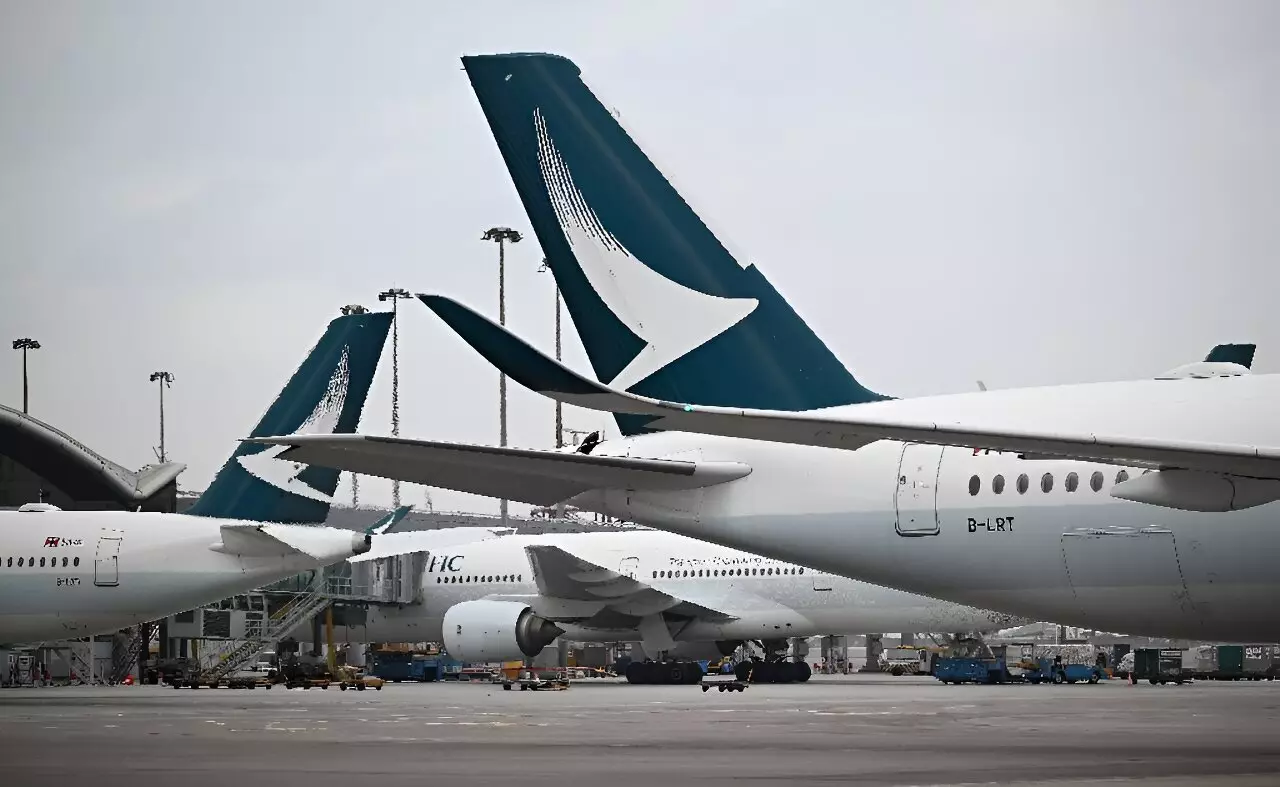Cathay Pacific recently faced a significant challenge when it had to ground 48 of its Airbus A350 planes for checks due to defective engine fuel lines. This issue led to the cancellation of dozens of flights, causing disruptions for passengers and impacting the airline’s operations. However, the airline has stated that it will resume full operations by Saturday after replacing the faulty components on the affected aircraft.
The incident involving Cathay Pacific’s A350 fleet prompted other airlines in the region to carry out similar checks on their A350-900 and A350-1000 models. While Cathay Pacific has been proactive in addressing the issue and ensuring the safety of its passengers, the response from other airlines has varied. Japan Airlines confirmed that their A350 jets were in good condition, while Thai Airways and Singapore Airlines reported no impact on their flights. In Europe, Air France stated that they were in communication with Airbus and Rolls-Royce regarding the situation.
Passengers like Mr. Yuen, who were on board the affected flights, expressed their concerns about the safety of the aircraft. The lack of communication from Cathay Pacific regarding the status of the checks added to the anxiety of passengers. However, airlines such as Qatar Airways have reassured the public that there has been no impact on the operation of their A350-1000s. Despite the ongoing investigation and cooperation between Airbus, Rolls-Royce, and Cathay Pacific, the incident has raised questions about the durability and longevity of the A350 engines.
Aviation expert Terence Fan emphasized the critical importance of fuel flow in aircraft engines and highlighted the urgency of addressing mechanical issues promptly. The detection of defective engine fuel lines on a significant portion of Cathay Pacific’s A350 fleet is a cause for concern, as it could potentially affect the safety and reliability of the aircraft during long-haul flights. Fan stressed the importance of replacing faulty parts quickly to prevent any operational disruptions.
The incident involving Cathay Pacific’s A350 fleet serves as a reminder of the challenges and complexities involved in ensuring the safety and reliability of commercial aircraft. While modern airplanes are equipped with advanced technologies, mechanical issues like defective engine fuel lines can still arise and have a significant impact on operations. Airlines must prioritize regular maintenance checks and swift repairs to maintain the highest standards of safety for passengers and crew.
The recent discovery of defective engine fuel lines on Cathay Pacific’s A350 planes highlights the importance of proactive maintenance and thorough inspections in the aviation industry. The response from airlines, regulators, and aviation experts underscores the collective effort to address safety concerns and minimize disruptions. As the investigation into the root cause of the issue continues, the lessons learned from this incident will undoubtedly shape future safety protocols and maintenance practices in the airline industry.


Leave a Reply